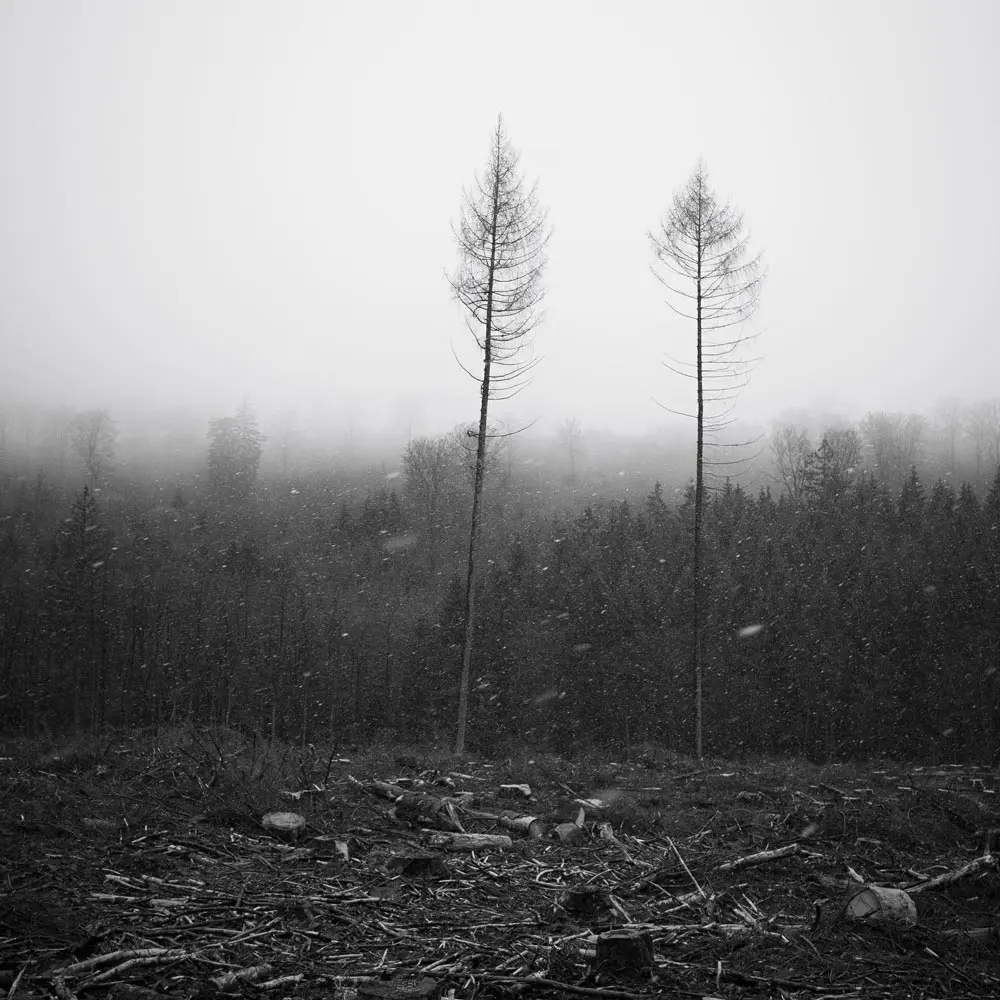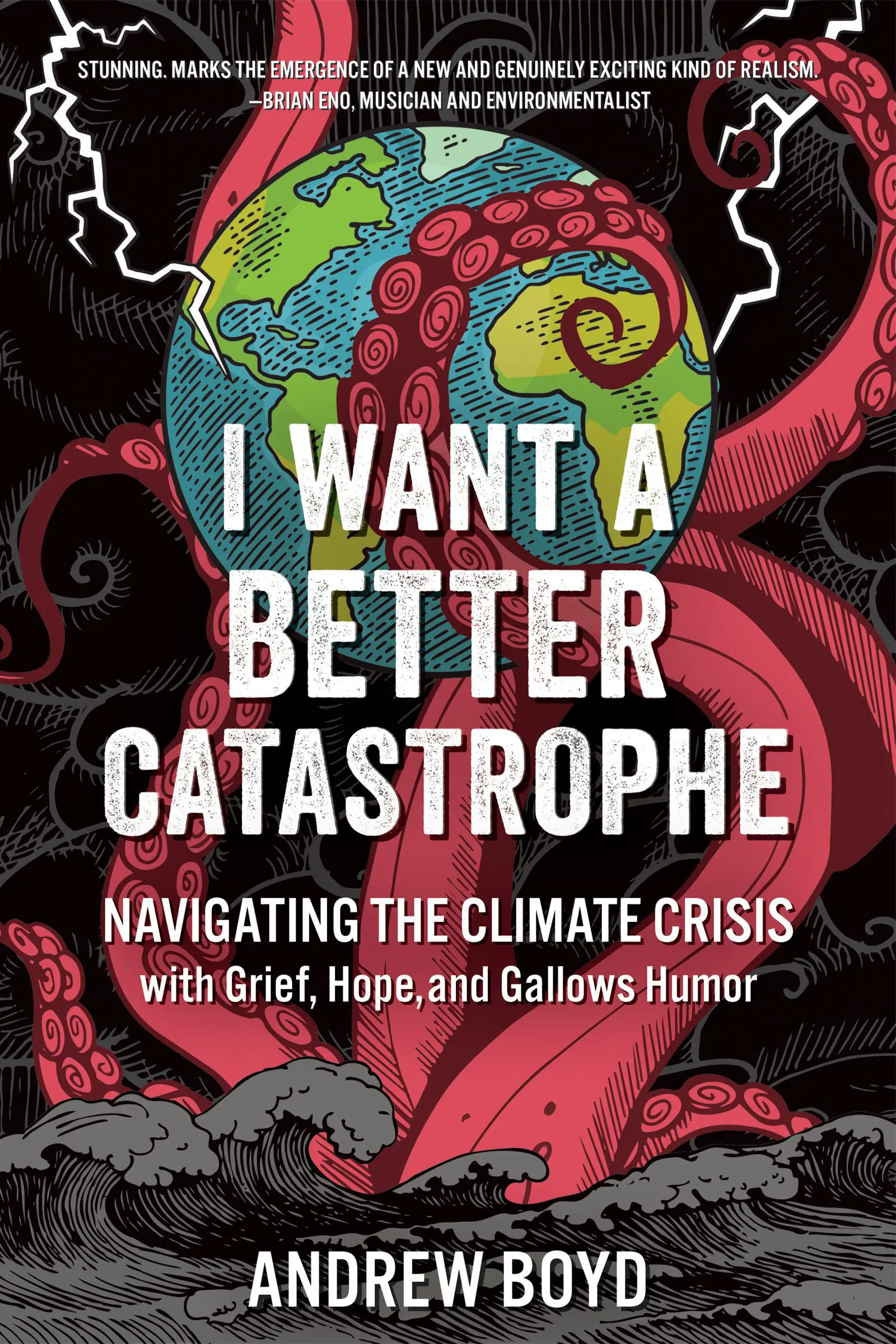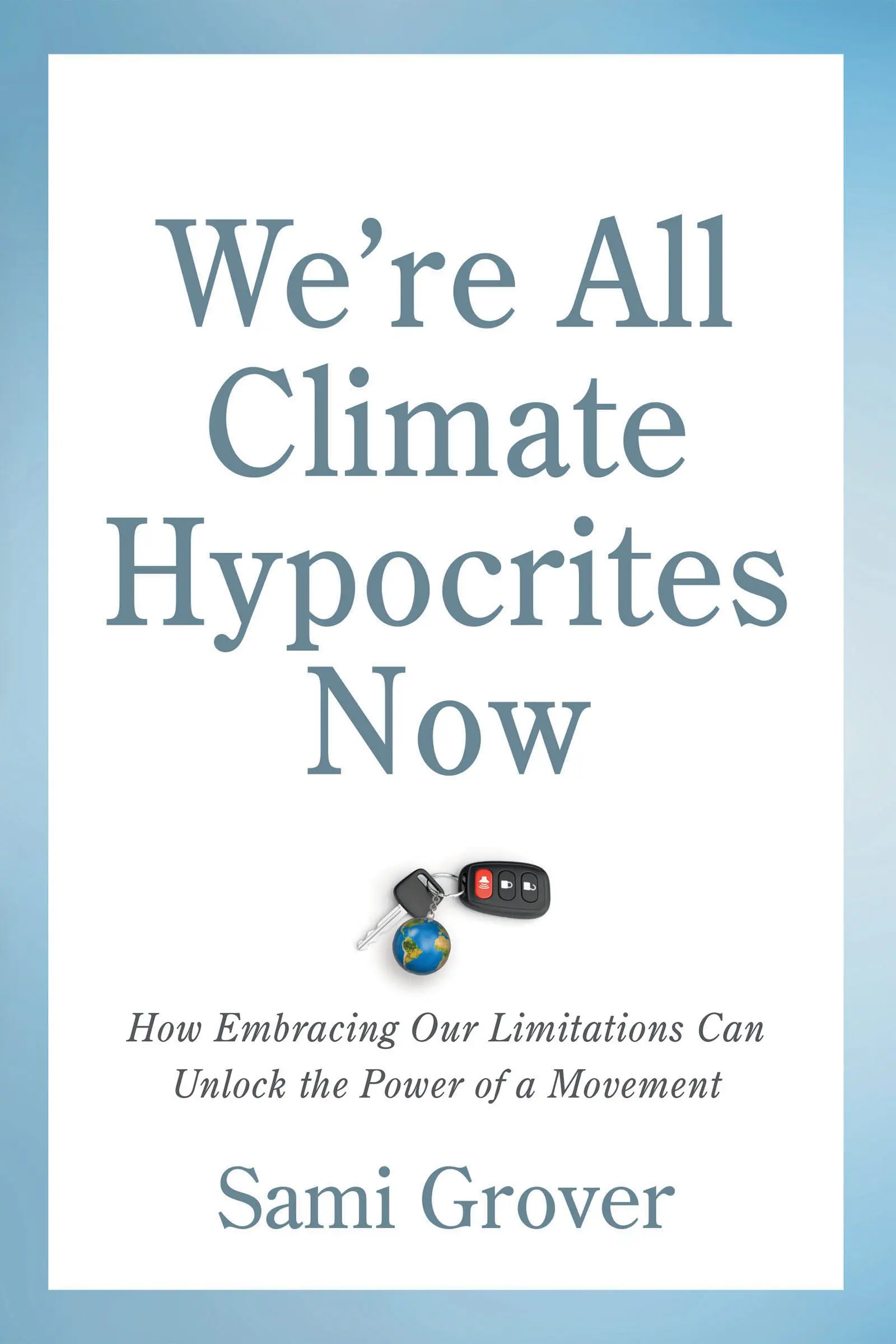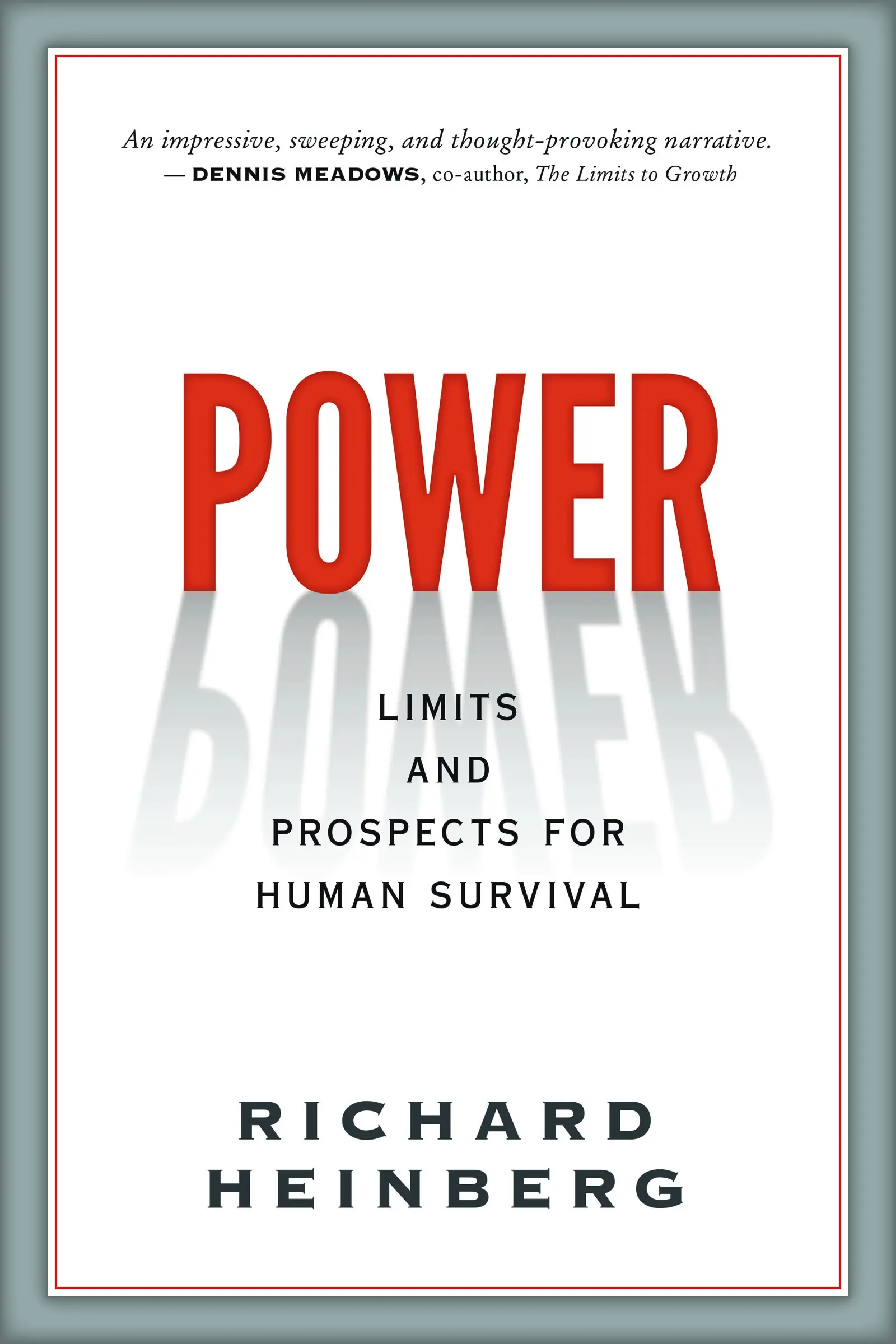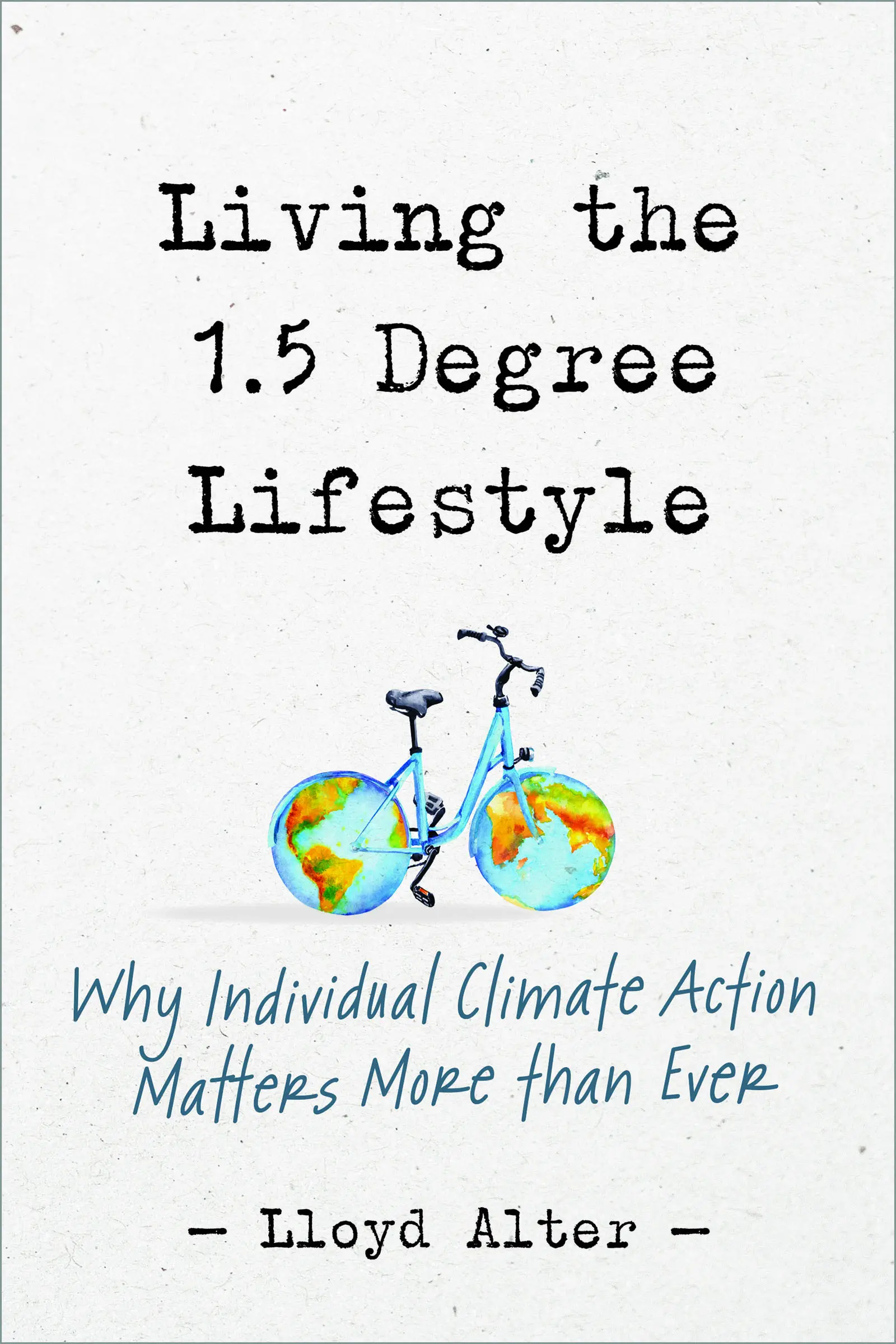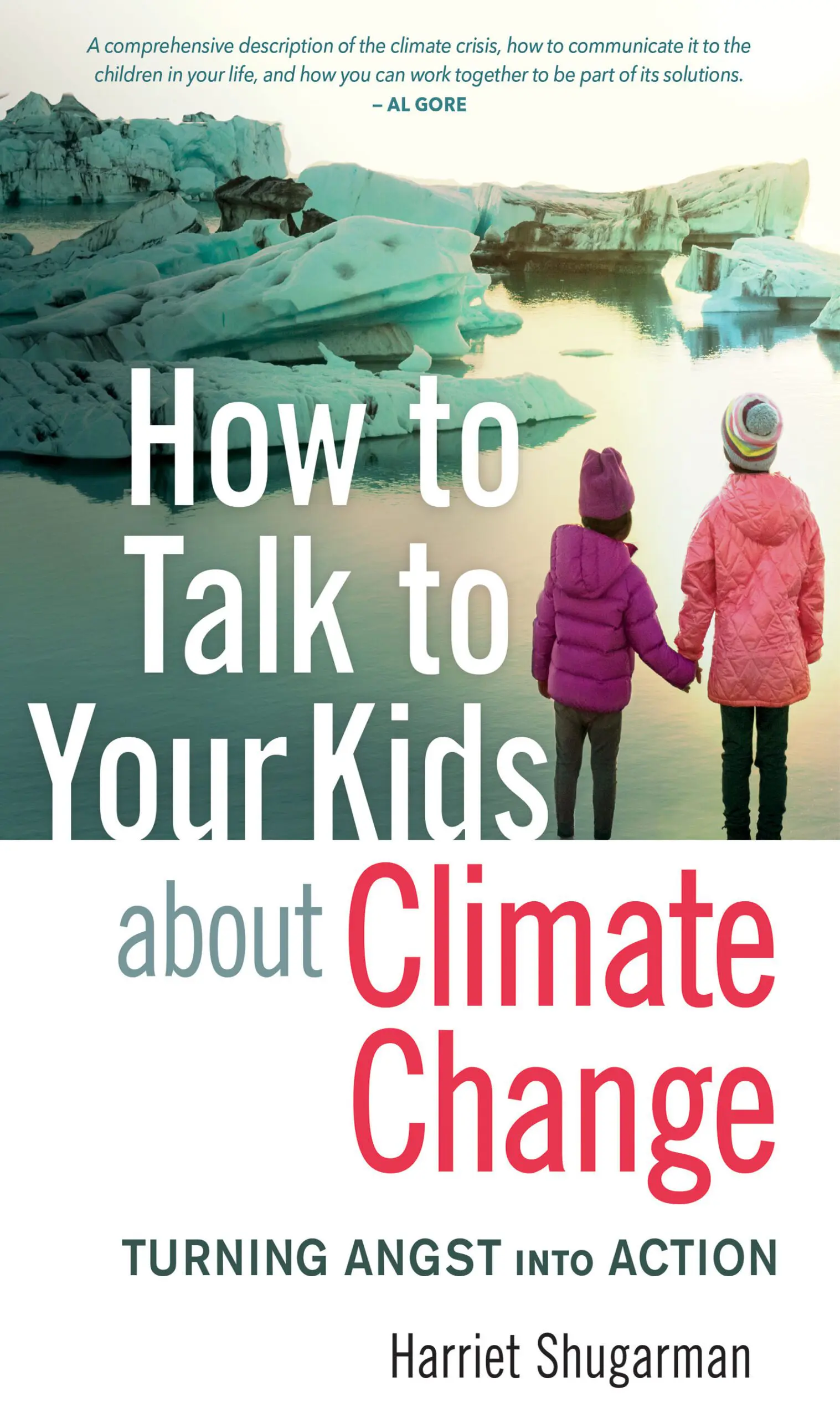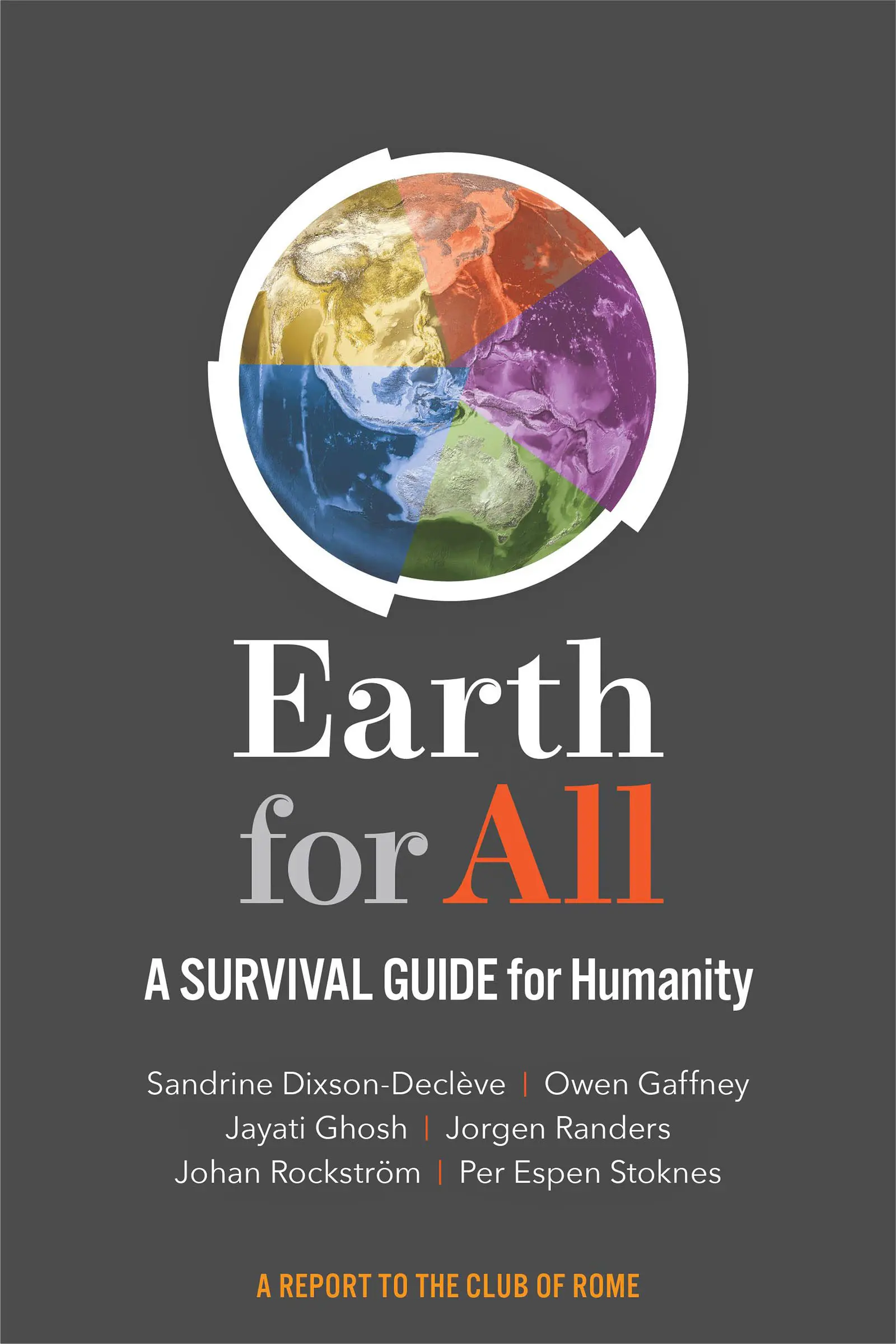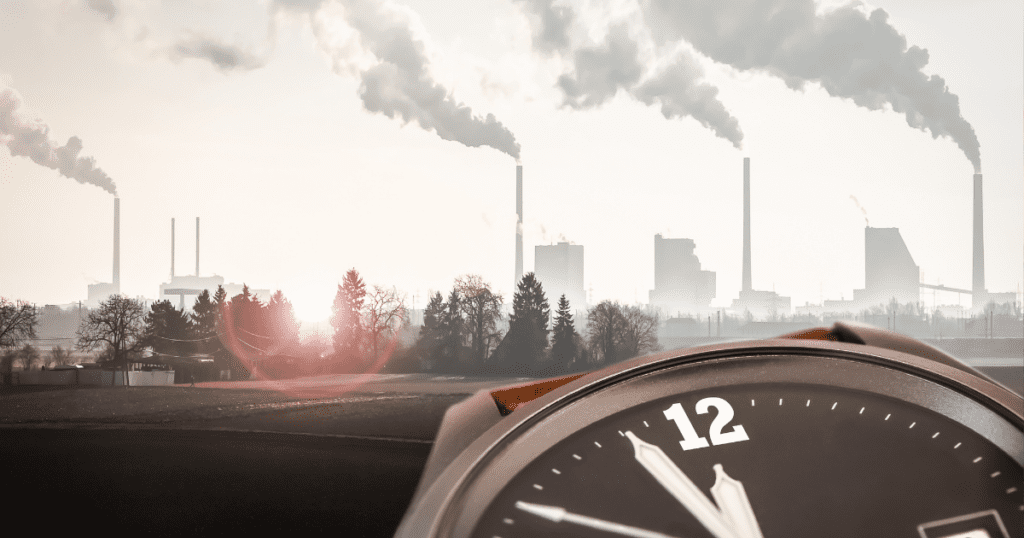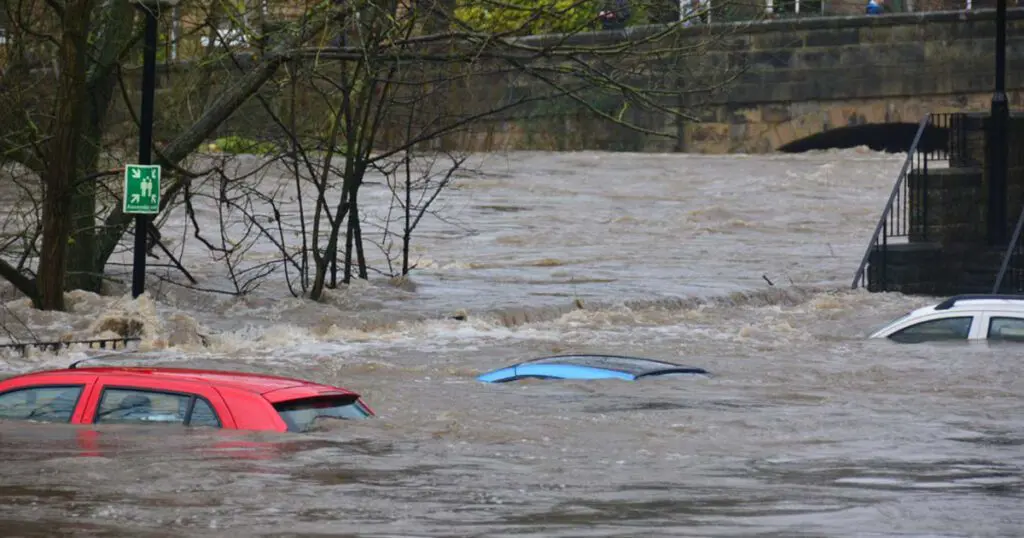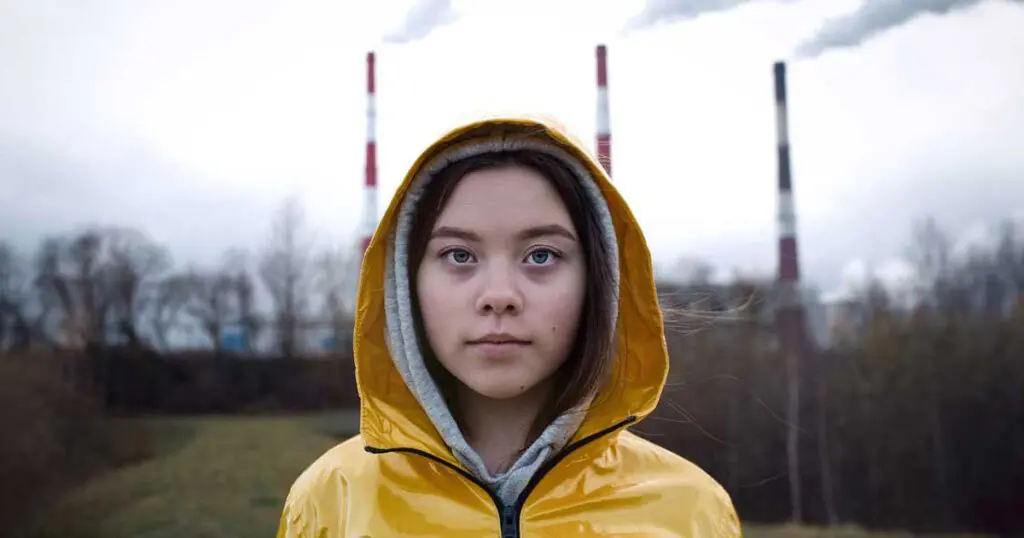
As author Andrew Boyd demonstrates, we must go through a grieving process in order to move forward on climate issues. But how do we do that? And are we even sure what, exactly, we’re grieving? In this excerpt from I Want a Better Catastrophe, Boyd begins to unpack this tangled-up topic.
The Five Stages of Climate Grief
Guy McPherson said we’re locked into a path unavoidably leading to extinction. Tim DeChristopher: Not so fast. It’s only industrial civilization that’s going to collapse. Yes, it’s too late to prevent catastrophe, but if we step up our game, over the long-term we can still build a new, more decent society on the ashes of the old. When someone tells you that it’s “only” civilization that’s going to collapse, and the news comes as a great relief, you know you and your species are in for a world of hurt.
These first two meetings gave me future-scenario whiplash, but reminded me, whichever path we’re on, it’s a path of grief.
Per Espen Stoknes, Norwegian social psychologist and author of What We Think About When We Try Not To Think About Global Warming, argues that regardless of whether there’s still time to turn things around, the only way we will be able to take adequate action (never mind honor the reality of the moment we’re living through), is if we first go through a “Great Grief,” about the destruction of our natural world. Naomi Klein agrees: “There has to be a space in which we can grieve,” she says. “And then we can change.” Whether hopeless, still hopeful, or agnostic, all agree: we must break our own hearts; we must grieve the end of the world. But how?
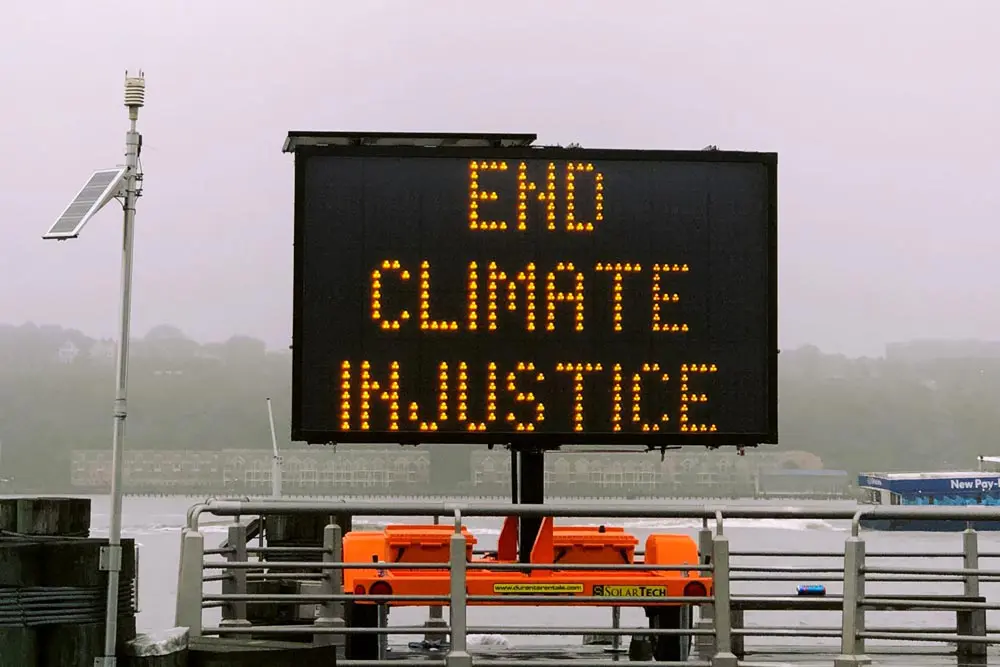
You have to go through all five stages of climate grief, except they’re not stages, there’s more than five, and you might have to walk backwards.
From DeChristopher to Klein, our leading climate thinkers are telling us grief is a necessary reckoning with a 21st century increasingly gutted by Climate Chaos. Rituals like the Climate Ribbon show us that grief can be a path of compassion and community. Mystics and poets across the ages go further, claiming that, at some essential level, grief is what makes us human. “Before you know kindness as the deepest thing inside,” says poet Naomi Shihab Nye, “you must know sorrow as the other deepest thing.”
But how human do we have to get? How much sorrow can we take? We’re losing as many as 200 species a day; the Arctic ice will be gone in a generation; New York and Shanghai will be underwater by the end of the century; billions of humans may die. For any of us alive now, who’ve known the beauty of our world and the relative stability of our climate, how could our grieving ever end? Maybe it can’t. Maybe it’s just something we’re going to need to keep doing our whole lives, and just try to get good at.
Elisabeth Kubler-Ross formulated her five stages of grief— denial, anger, bargaining, depression, acceptance— to track the stages an individual goes through as they reckon with the news of a diagnosis of terminal illness. These stages can also be a helpful guide as we reckon with all we’re losing in our larger world. However, as anyone who’s been through a deep grief knows, it’s never a simple scripted march through any set of stages, and then you’re somehow healed and back in action. It’s a tangled meandering; less a linear process than it is a spiral or even a fractal one (where at every stage you have to go through sub-stages of all the stages, ad infinitum). And we never quite arrive, we’re never quite done with grief.
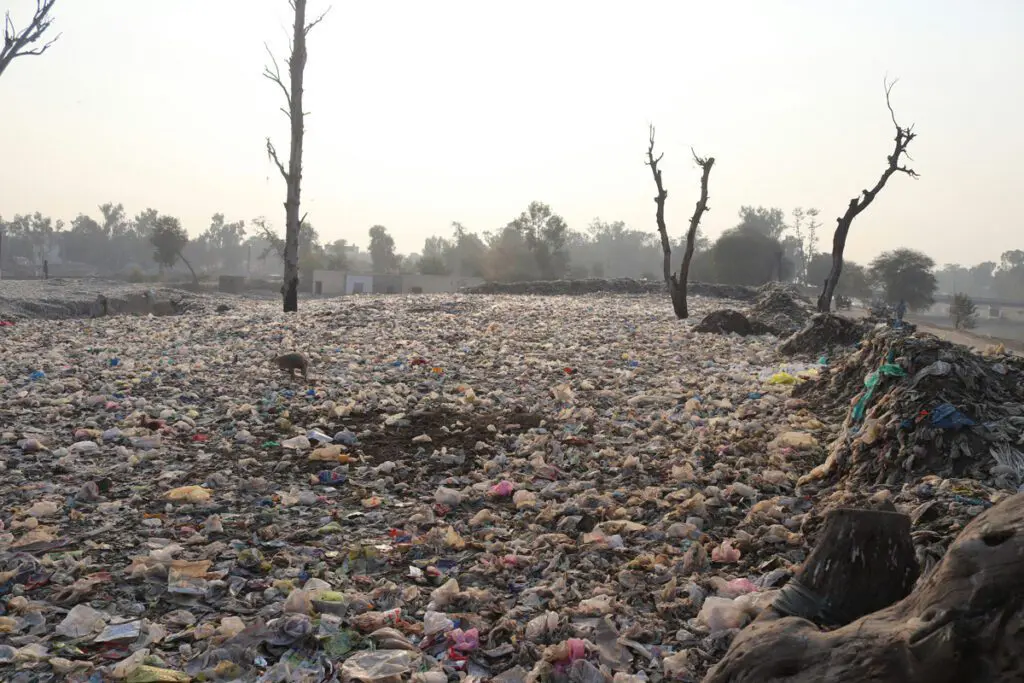
When it comes to climate grief specifically, British eco-journalist Gregory Norminton suggests we may even need to walk backwards:
Could it be that we [environmentalists] are undergoing the five stages of grief in reverse? We began with acceptance— of the science, and of what the science means for us. Then came depression, since the future is a place we would not wish to bequeath to our worst enemies let alone our children. In defense against depression, we entered the bargaining stage: surely with enough treaties, tax incentives and political will we can avoid the worst. Yet the political will is lacking and every week the evidence mounts that we are hurtling towards the abyss. This makes us angry with ourselves and our elites for failing the greatest test our species has ever faced. And where do we go from anger if not into denial— a soft-focused, open-hearted denial without which we would have to abandon all efforts to forestall the apocalypse?
As climate catastrophe rolls toward us, we’re not just grieving our devastated world, we’re also grieving something trickier, more hidden, inside ourselves. Because what I suspect we may be most in denial of— and most angry at, bargaining with, depressed about, and, yes, need to accept—is not so much the facts of climate change, nor even the reality of all that we stand to lose, but the burden it places on us.
We didn’t ask to be alive at this time in history. We didn’t ask to be responsible. But here we are, and we must find a way to live with what we know is coming. And, whether we find ourselves hopeful, hopeless, or something in between, we must find a way to act. In fact, maybe all our grieving has a secret purpose: to clear room in our hearts for this unwelcome burden.
Whether climate chaos has already caused you grievous loss, or whether it’s just tugging on your conscience from afar; whether you’re walking through the stages backwards, or following a spiral, or caught in an endless fractal, in the 21st century we’re all going to have to walk a path of grief.
